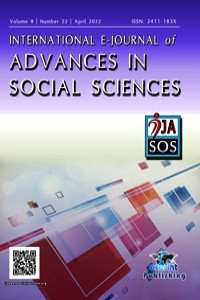TYPES OF FEARS AMONG CHILDREN OF THE FIRST CYCLE OF BASIC EDUCATION IN THE SULTANATE OF OMAN AND HOW PARENTS DEALING WITH THEM ACCORDING TO SOME DEMOGRAPHIC VARIABLES
Abstract
This study aims to determine the types of fears among students of the first cycle of basic education in the Sultanate of Oman, and to reveal the methods that parents use to relieve their children’s fears, and to investigate the impact of the parents’ educational level on the dealing methods they use to relieve their children’s fears, and to discuss the impact of gender, age, educational and economic level of parents in their acceptances of psychological counseling to treat their children's fears. The study used the Mix Method; the Spence Scale of Anxiety was applied to a sample of 162 male and female students, and 9 interviews were conducted with the parents of the students who obtained the highest scores on the Spence Scale. The results of the quantitative study revealed that specific fears were more common among children than the rest of the fears. As for the results of the qualitative study, it was shown that the most common types of fear among children, according to the opinions of their parents, is fear of loud sounds, especially screaming, as well as fear of the dark, and fear of the toilet. As for the parents' methods of dealing with the child's fears, the method of "containing the child with tenderness and reassuring him" came first for 21% of the parents, while the method of "reading a story to the child" was the least used by 5.3%. Likewise, the results showed that the higher the educational level of the parents, the more they tended to use positive educational methods to deal with the child's fears. Finally, the results showed that 77.8% of parents support the idea of resorting to psychological counseling to obtain psychological support and advice on proper educational methods to deal with their children's fears.
Keywords
References
- Briot, K., Jean, F., Jouni, A., Geoffray, M. Moal, L. Umbricht, D., & Amestoy, A. (2020). Social Anxiety in Children and Adolescents with Autism Spectrum Disorders Contribute to Impairments in Social Communication and Social Motivation. Frontiers in psychiatry, 11, 710.
- Chandler, J. (2006). Social Anxiety Disorder In Children and Adolescents. National center for Health and wellness.
Abstract
References
- Briot, K., Jean, F., Jouni, A., Geoffray, M. Moal, L. Umbricht, D., & Amestoy, A. (2020). Social Anxiety in Children and Adolescents with Autism Spectrum Disorders Contribute to Impairments in Social Communication and Social Motivation. Frontiers in psychiatry, 11, 710.
- Chandler, J. (2006). Social Anxiety Disorder In Children and Adolescents. National center for Health and wellness.
Details
| Primary Language | English |
|---|---|
| Journal Section | Research Article |
| Authors | |
| Publication Date | May 7, 2022 |
| Submission Date | February 28, 2022 |
| Published in Issue | Year 2022 Volume: 8 Issue: 22 |
Contact: ijasosjournal@hotmail.com
The IJASOS Journal's site and its metadata are licensed under CC BY
Published and Sponsored by OCERINT International © 2015- 2025

